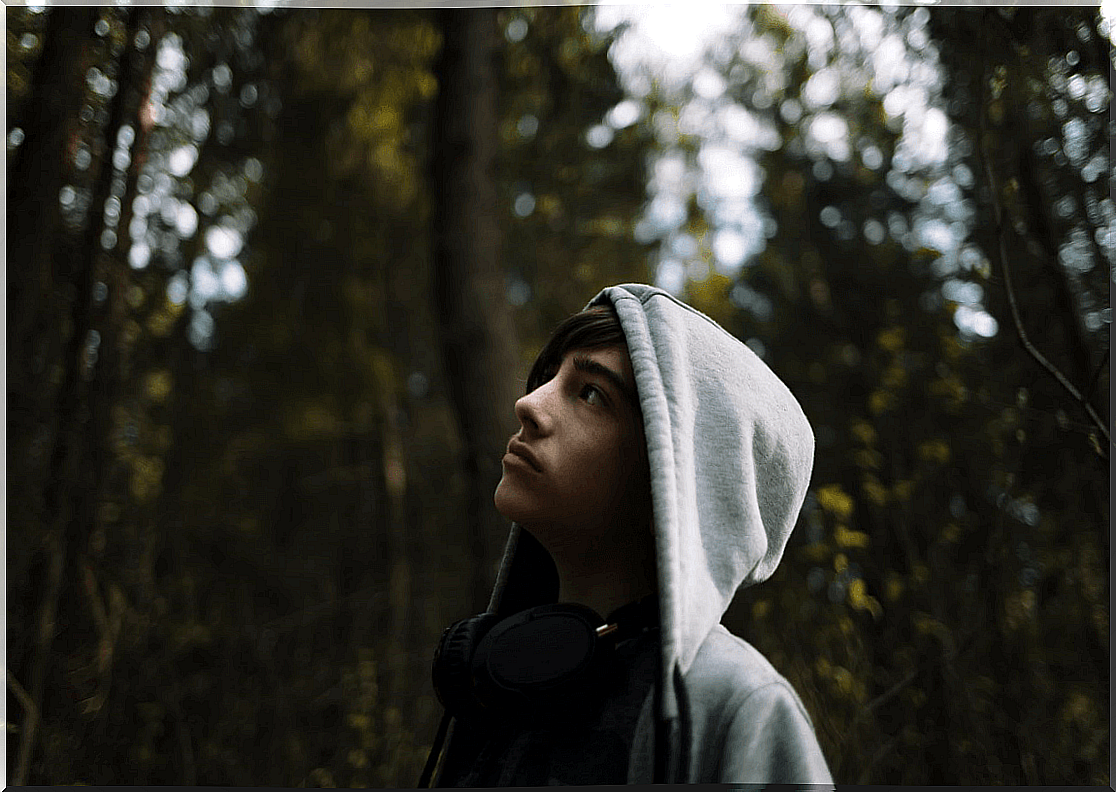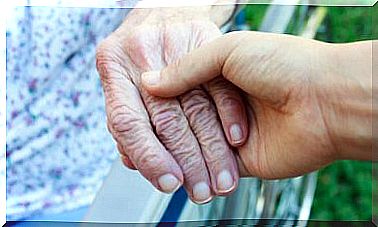Anxiety In Adolescence

When they talk to us about adolescence, it is not uncommon for us to think about how annoying boys can be at this stage. The problems they cause or how disobedient and rebellious they can become come to mind. We even remember a particular kid who is or was especially “bad” or “unbearable”.
But we don’t think about what we were like at that age. How confused we were. In the fears and insecurities that were raw. In the desire to fit in, in the desire to be treated as adults and to be understood. Because what reigned most in those years of our lives was misunderstanding, or at least that’s what we felt. The reality is for many it is a hard stage of life, in which psychological problems can appear, such as anxiety.
What causes anxiety in adolescence?
During adolescence, situations are experienced in a stressful way that for adults are unimportant. The need to be accepted by friends and classmates weighs heavily at this stage. Boys and girls need others to value them positively, to the point that any deficiency that can be observed by other people is a source of anxiety.
In addition, the family plays its role. The thoughts and behaviors that develop regarding fear are usually learned from parents or from the closest figures of reference. These can convey to children the feeling that the world is unsafe and dangerous through overprotection and the exaggeration of their fears. Exerting excessive control over boys and girls also influences anxiety appearing at these ages.

On the other hand, this issue is influenced by the fact that the expression of negative feelings is criticized at home. This can lead to emotional suppression. Children can also imitate avoidance behaviors that they see in their reference persons. Additionally, parents reinforce the initiation of this type of behavior. In this way, in addition to teaching how to avoid, even if unconsciously, they encourage their children to do so as well.
Thus, the attitude of the family is important as an influencing element in the appearance of anxiety. It is necessary to change the attitudes and behaviors that promote anxiety in adolescents for more adaptive ones. In this way, they will be able to develop effective emotional regulation strategies that improve their psychological well-being.
How do you experience anxiety in adolescence?
Boys and girls who have anxiety problems at these ages live with great discomfort. On the one hand, there is the internal dialogue they have with themselves. This discourse is full of catastrophic expectations and ineffectiveness, as well as constant concerns. Adolescents with anxiety excessively think that they are going to make a fool of themselves, that no one is going to appreciate them, that they are going to fail in the educational and social environment, etc.
On the other hand, what they do is avoid everything they fear, so that anxiety decreases at that moment, but in the long run it increases and tolerance to it is less and less. In this way, they carry out less and less those activities that are typical of their age, even becoming socially isolated.

In addition, it tends to lower their academic performance, which can jeopardize their self-esteem and their sense of acceptance by others. The bad mood and irritability appear, so that their social relationships are, again, damaged. Persistent nightmares also occur. But the greatest risk at these ages is that they may use drugs, or substitutes for them such as gambling, to escape their problems and thus regulate their anxiety.
The consequences of anxiety in adolescence
Anxiety disorders at this stage of life significantly affect the psychosocial development of adolescents. In addition, they are the most frequent and disabling psychological problems among young people. They can appear along with other pathologies, such as depression. If they are not treated at this stage of life, they can become chronic and pass the threshold of adolescence.
Due to the discomfort generated by anxiety problems, as well as the difficulties associated with all levels, it is important that these pathologies are treated. Not only the adolescent must learn, through the help of a professional, adaptive emotional regulation strategies; It is also necessary that significant changes take place in the family environment.
In addition, it is interesting to carry out preventive work in this regard, so as to reduce the chances of adolescents suffering from pathological anxiety. For example, in the school environment, programs for emotional regulation and training in social skills can be implemented. In this way, young people can acquire the necessary tools even before any problems appear.
Images courtesy of Ben White, Anthony Ginsbrook and Sergey Svechnikov









